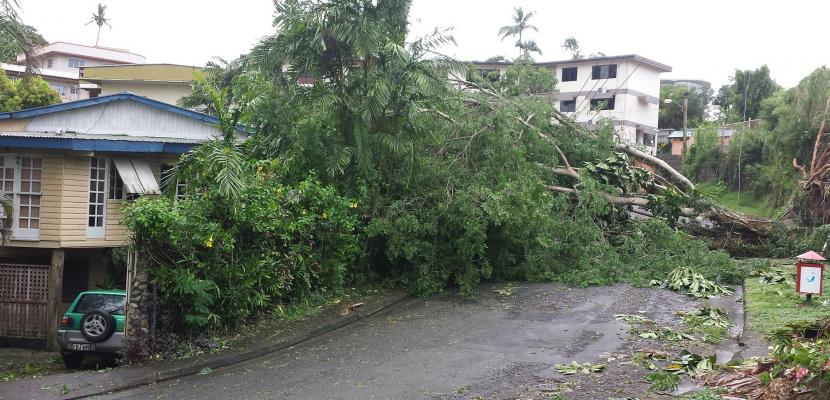
When Bond University final year medical student Juliette Rountree elected to spend three weeks in a Fijian hospital as part of her studies, the 21-year-old had no idea she would be caught in the middle of a severe tropical cyclone that would see her work as part of an emergency medical team.
Ms Rountree, who will graduate with a Bachelor of Medicine and Surgery (MBBS) this year, had been on clinical placement at the Colonial War Memorial Hospital in Suva for two weeks when the Category 5 Cyclone Winston hit the Fijian capital on February 20.
Cyclone Winston was the strongest tropical cyclone on record to make landfall over Fiji, killing 44 people and causing widespread damage to the country.
Ms Rountree was staying with a Fijian family when a nationwide curfew was instituted ahead of the predicted landfall, helping to board up windows and doors of the home before the power was disconnected by a falling tree that narrowly missed their kitchen.
"It was such a frightening experience, however on Sunday morning when the cyclone had passed through Suva I knew I needed to get to the hospital to help however I could," said Ms Rountree.
"Following police approval, I was allowed to break curfew and walk the few kilometres up the road to the Colonial War Memorial Hospital where I had been working for the past two weeks in general medicine.
"When I arrived I went directly to the emergency ward to volunteer and was told they needed as much help as possible.
"For that whole Sunday I worked in the emergency ward, seeing patients and helping the consultants and registrars with the influx of patients in the wake of the cyclone.
"When situations were beyond the scope of my capabilities, I would pass those patients on to the senior medical staff and move on to patients who were less critical in order to reduce the overall workload and allow doctors to focus where they were urgently needed.
"However, there was a patient I worked on who had a sudden heart attack, and I was part of the team of doctors administering CPR, defibrillation and oxygen in order to resuscitate him.
"The patient survived so it was an incredibly positive outcome, thanks to the hard work put in by the working team of doctors."
Ms Rountree said the two weeks working at the hospital before Cyclone Winston hit had also helped to build her knowledge and experience practicing medicine in a developing nation and would prepare her for a future career serving her country in the Air Force.
"I am studying at Bond University on an undergraduate sponsorship program through the Air Force which means after my internship and residency I will spend a minimum of four years as a Medical Officer, with the possibility of being deployed at any time," she said.
"My future career will likely take me to natural disaster zones and war zones where medical resources will be limited, however I never expected to be exposed to this type of situation so soon.
"I have always wanted to give back which is why I chose to study medicine, and although it was such a scary experience that I would not wish upon anybody, I definitely took lifelong lessons away from Fiji and I'm happy to have been able to do my part to assist in such a devastating crisis.
"The experience will undoubtedly make me a better doctor; it taught me how to use my resources, work as part of a medical team under pressure and to act decisively in the most critical of situations where people's lives are on the line.
"Even before the cyclone hit, working within the Fijian medical system was so different to working in Australia as their procedures, equipment and staffing were much more limited.
"Sometimes it was not possible to do even a simple blood test because we didn't have the reagent or an x-ray because the machine had broken down, so you really had to focus on a patient's history and physical exam rather than relying on test results like we would in Australia.
"This really helped build my rapport with patients and taught me how important those personal elements of medicine really are."